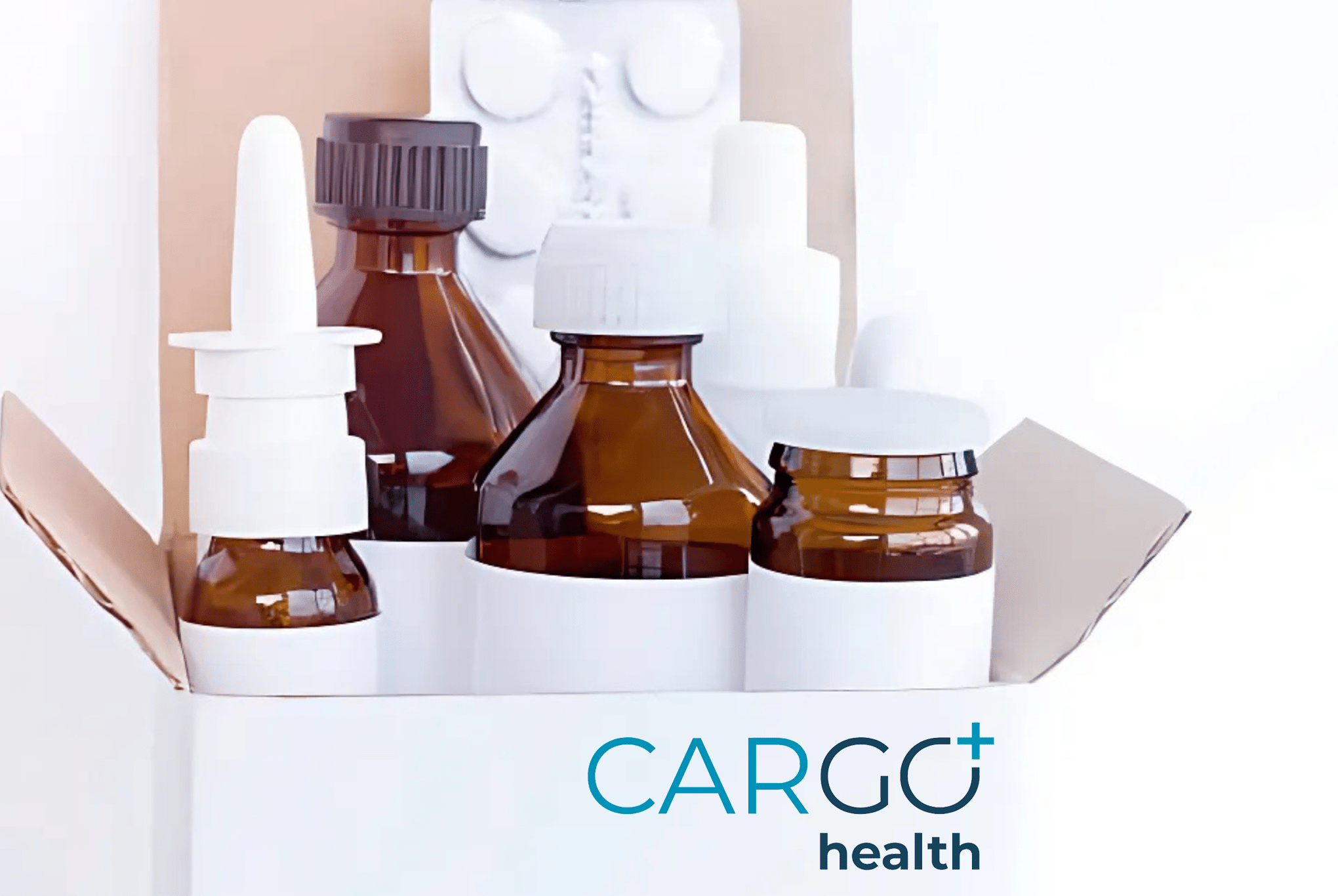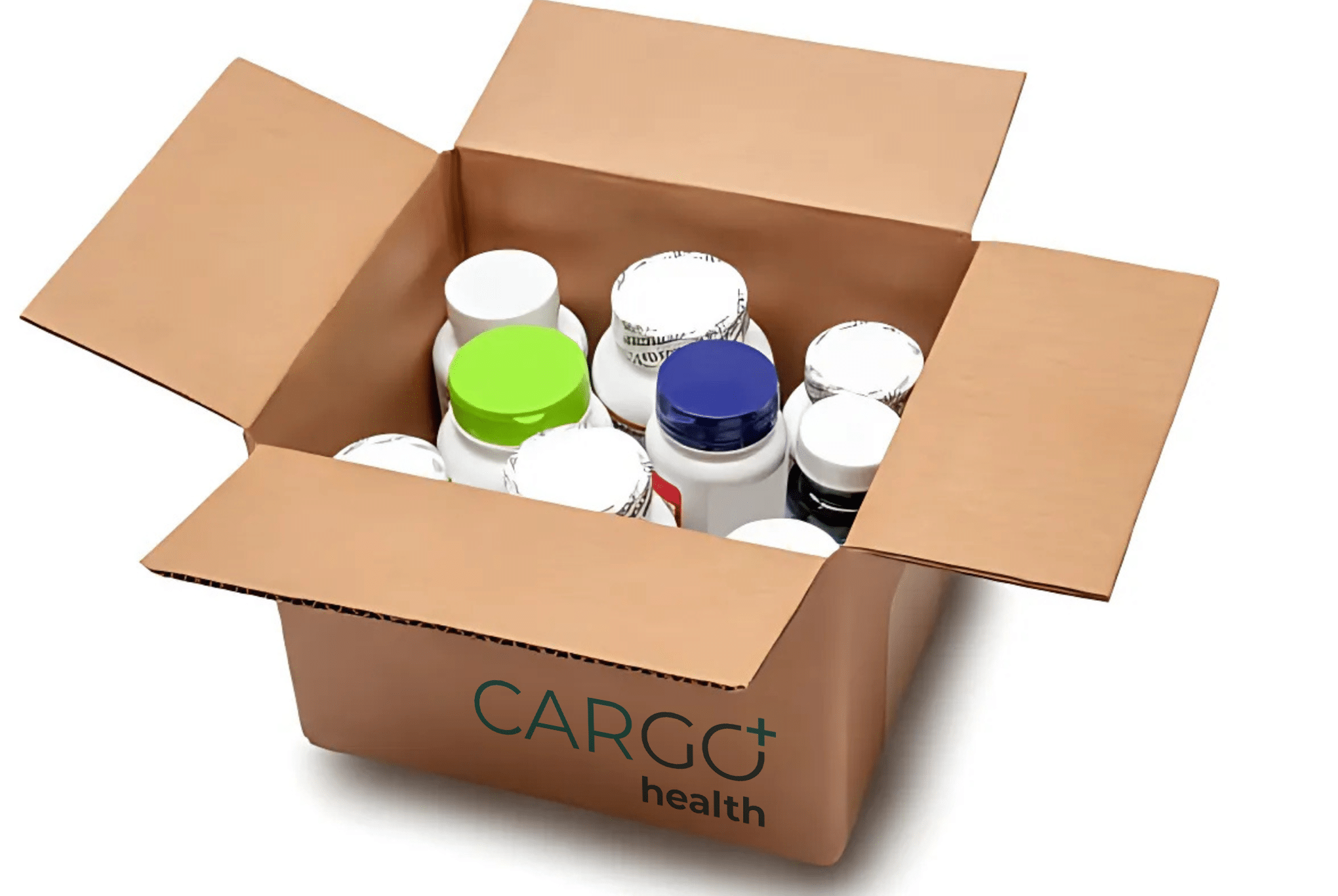Essential Insights into Medical Logistics and Delivery Services

Table of Contents
- The Role of Technology in Medical Courier Services
- Same-Day vs. Scheduled Deliveries: Strategic Approaches
- Economic Considerations: Costs and Savings
- Addressing Challenges in Medical Logistics
- Packaging and Labeling: Ensuring Safety and Compliance
- Environmental Impact and Sustainability in Medical Logistics
- Innovations Shaping the Future of Medical Logistics
Medical courier services and logistics are integral to the healthcare industry, ensuring the safe, efficient, and compliant transport of critical medical items. These services address a wide range of requirements, from temperature-sensitive pharmaceuticals to time-critical specimens, enabling healthcare providers to maintain high standards of patient care. In this article, we delve into the critical aspects of medical logistics, focusing on the technology, practices, and innovations shaping the field.

The Role of Technology in Medical Courier Services
Advancements in technology have significantly refined medical logistics, driving precision, efficiency, and enhanced operational transparency. Real-time GPS tracking systems and IoT-enabled cold chain solutions provide granular oversight throughout the delivery process, ensuring that critical medical supplies, including temperature-sensitive vaccines and organ transplants, arrive within required timeframes and under optimal conditions. These systems mitigate delays and errors by facilitating proactive interventions when deviations occur, such as temperature fluctuations or unexpected route changes.
IoT sensors integrated into temperature-controlled containers continuously monitor environmental variables, transmitting live data to logistics teams. This ensures immediate corrective actions when thresholds for temperature, humidity, or shock sensitivity are breached—an essential safeguard for pharmaceuticals and biological specimens.
Blockchain technology has emerged as a robust solution for supply chain integrity and traceability. Its decentralized ledger architecture enables secure, tamper-proof recording of every logistical touchpoint, reducing risks of counterfeit goods and enhancing compliance with regulatory frameworks like HIPAA and FDA guidelines. By maintaining immutable records of custody and conditions, blockchain ensures verifiable transparency across the supply chain.
Autonomous delivery systems, including drones and self-navigating vehicles, represent the next frontier in medical logistics. These innovations address last-mile delivery challenges, particularly in remote or geographically complex areas, while reducing reliance on traditional transportation methods. Coupled with AI-driven dispatch algorithms, these systems optimize delivery routes in real-time, minimizing fuel consumption and improving delivery efficiency without compromising precision or speed.
Through the integration of these technologies, medical courier services are positioned to address the complex demands of modern healthcare logistics, delivering reliable solutions with a heightened focus on compliance, safety, and performance.
Same-Day vs. Scheduled Deliveries: Strategic Approaches
In medical logistics, balancing the urgency of same-day deliveries with the efficiency of scheduled services requires a calculated and technology-driven approach.
Same-Day Delivery Solutions:
- Address critical, time-sensitive scenarios such as emergency transport of blood samples, diagnostic specimens, or donor organs.
- Prioritize speed and precision by leveraging AI-enhanced dispatch systems and real-time route optimization tools to minimize delays caused by traffic or other logistical variables.
Scheduled Deliveries:
- Streamline the recurring transport of predictable shipments, including pharmaceuticals, medical equipment, and regular clinic supplies.
- Utilize predictive analytics to anticipate demand, allocate resources effectively, and maintain optimized delivery schedules.
- This reduces unnecessary fleet utilization, operational overhead, and ensures consistent service reliability.
Dynamic Adjustments with AI-Driven Platforms:
- AI-driven logistics platforms enable dynamic adjustments for both delivery types, allowing couriers to reassign resources when unforeseen disruptions occur.
- Real-time data from IoT-enabled devices ensures continuous monitoring of delivery conditions, such as temperature stability for cold chain items.
- This is particularly critical for pharmaceuticals and biological materials that require strict environmental controls.
Strategic Alignment Through Advanced Technologies:
- Advanced technologies analyze traffic patterns, route efficiencies, and resource availability to align same-day and scheduled delivery services.
- Machine learning models forecast demand spikes, enabling proactive adjustments in fleet management and staffing.
- This ensures operational targets are met without compromising service standards or timelines.
Through this systematic approach, medical courier providers successfully balance urgent and recurring delivery requirements, optimizing cost-efficiency and ensuring compliance with the healthcare sector’s stringent time and quality expectations.
Economic Considerations: Costs and Savings
The financial framework of medical logistics is shaped by multiple interconnected factors, including stringent regulatory compliance, specialized transport infrastructure, and the integration of advanced technological systems. These investments, while substantial, deliver measurable value by minimizing operational inefficiencies, mitigating errors, and ensuring adherence to industry standards such as HIPAA, OSHA, and FDA guidelines.
Regulatory compliance mandates the use of secure, traceable processes and temperature-controlled equipment for transporting pharmaceuticals, biological specimens, and sensitive medical devices. IoT-enabled monitoring systems, real-time GPS tracking, and automated cold chain management tools are pivotal in safeguarding cargo integrity while reducing the risks associated with spoilage or non-compliance penalties.
Cost-efficiency within medical logistics is further enhanced through strategic resource allocation. AI-powered route optimization platforms analyze traffic data, delivery urgency, and fuel consumption in real time, reducing travel time and operational expenditures. Shared delivery models, which consolidate shipments for multiple healthcare facilities along optimized routes, help lower per-unit transportation costs while maintaining delivery performance.
Predictive maintenance technologies add another layer of cost savings by improving fleet reliability. Leveraging sensor-based diagnostics and historical performance data, these tools preempt vehicle or equipment failures, minimizing unexpected downtime and repair costs. Such proactive measures ensure continuous operations and reduce disruption risks in time-sensitive medical deliveries.
Through the integration of these advanced systems, medical courier services achieve a balance between operational investments and economic returns, enhancing long-term viability while maintaining the precision and reliability required for healthcare logistics.
Addressing Challenges in Medical Logistics
The medical logistics sector operates within a complex landscape of regulatory requirements, environmental constraints, and the critical need for precision. Challenges such as maintaining temperature stability, ensuring regulatory compliance, and mitigating disruptions in delivery schedules demand sophisticated, technology-driven solutions to uphold supply chain integrity.
Regulatory compliance with frameworks like HIPAA, FDA, and OSHA introduces stringent requirements for secure handling, accurate documentation, and chain-of-custody verification. Digital documentation systems with automated data capture ensure that every transit stage is recorded and auditable, reducing risks of non-compliance while maintaining transparency across the supply chain.
Environmental controls represent another significant challenge, particularly in the transport of temperature-sensitive materials, including vaccines, biologics, and blood products. IoT-enabled cold chain solutions employ real-time sensors to monitor temperature, humidity, and shock exposure. These systems provide live alerts to logistics teams, allowing immediate intervention if deviations occur, thereby preserving cargo integrity under dynamic transit conditions.
Predictive risk management powered by AI addresses logistical disruptions such as traffic delays, equipment malfunctions, or adverse weather conditions. By analyzing real-time and historical data, AI-driven tools forecast potential risks and recommend preemptive adjustments, optimizing route selection and resource allocation. This ensures timely deliveries while minimizing delays and operational inefficiencies.
Furthermore, supply chain security remains a priority, particularly in mitigating the risks of tampering, theft, or loss. Blockchain technology offers a decentralized, tamper-resistant ledger that records every logistical interaction, enhancing traceability and reinforcing trust throughout the transport process.
By integrating these advanced solutions, the medical logistics industry effectively mitigates risks, upholds compliance, and ensures the safe and timely delivery of critical medical items, aligning with the stringent demands of modern healthcare systems.
Packaging and Labeling: Ensuring Safety and Compliance
In medical logistics, precise packaging and labeling protocols are critical to maintaining the safety, integrity, and regulatory compliance of transported items.
Specialized Handling for Critical Items:
- Pharmaceuticals, biological specimens, and medical devices require handling solutions that mitigate risks during transit.
- These solutions must adhere to stringent industry standards, such as FDA, HIPAA, and DOT regulations.
Advances in Materials Science:
- High-performance packaging systems provide thermal insulation, shock resistance, and contamination prevention.
- Multi-layered insulation materials, combined with phase change technology (PCT), ensure stable internal environments for temperature-sensitive items like vaccines and biological samples, regardless of external conditions.
- For fragile or hazardous materials, impact-absorbing materials and tamper-proof seals add additional layers of security.
Smart Labeling Systems:
- RFID-enabled labels and QR codes enable real-time identification, monitoring, and location tracking of shipments across the supply chain.
- These technologies support automated data capture, reducing human error in manual processes and ensuring regulatory documentation accuracy.
Automated Labeling Integration:
- Automated labeling systems integrate with logistics platforms to streamline operations.
- Each package includes critical details such as product type, handling instructions, and environmental requirements.
- Labels equipped with real-time temperature and condition indicators allow couriers to visually assess cargo status, enabling proactive corrective measures if deviations occur.
Sustainability in Packaging:
- Biodegradable and reusable materials are emerging as viable alternatives to traditional packaging, aligning with environmental priorities without sacrificing performance.
- Lightweight material innovations further reduce shipping costs and carbon emissions, creating a more sustainable logistics framework.
By combining advanced materials, automated labeling solutions, and sustainable practices, medical logistics providers ensure compliance, safeguard product integrity, and deliver measurable improvements in operational efficiency.
Environmental Impact and Sustainability in Medical Logistics
The medical logistics sector is addressing sustainability imperatives by integrating advanced technologies and environmentally conscious practices into its operations. These initiatives focus on reducing carbon emissions, optimizing resource utilization, and aligning with healthcare organizations’ sustainability benchmarks without compromising delivery precision or operational performance.
Electric vehicle (EV) fleets and hybrid transportation systems are increasingly replacing conventional fuel-based logistics vehicles. EVs not only eliminate tailpipe emissions but also reduce noise pollution, making them ideal for urban healthcare environments. Coupled with AI-driven route optimization tools, EV deployments further minimize energy consumption by identifying the most efficient paths based on real-time traffic and delivery urgency.
Reusable and biodegradable packaging solutions are redefining environmental standards for medical logistics. Innovations in lightweight, insulated packaging materials ensure the protection of temperature-sensitive shipments while reducing overall shipment weight, fuel consumption, and environmental impact. Additionally, the integration of IoT-enabled sensors in reusable containers enhances condition monitoring, allowing organizations to track usage cycles, reduce wastage, and maintain product integrity.
AI and machine learning technologies play a critical role in enhancing operational sustainability. Predictive analytics forecast demand and delivery requirements, enabling logistics providers to optimize fleet utilization, consolidate shipments, and minimize redundant routes. This data-driven approach lowers fuel usage, reduces carbon footprints, and enhances overall resource efficiency.
Furthermore, organizations are adopting renewable energy solutions, such as solar-powered warehouses and charging stations, to support eco-friendly supply chain operations. These measures align with global sustainability initiatives while meeting the rigorous demands of healthcare logistics.
By leveraging green transportation, intelligent packaging, and AI-powered optimization tools, the medical logistics sector continues to implement sustainable solutions that align with both environmental objectives and operational excellence. These efforts are a testament to the industry’s ability to adapt to evolving ecological priorities while maintaining its commitment to precision, safety, and compliance.
Innovations Shaping the Future of Medical Logistics
The future of medical logistics is being defined by transformative technologies designed to enhance efficiency, transparency, and responsiveness within healthcare supply chains. Emerging trends such as autonomous delivery systems, AI-driven forecasting models, and blockchain-enabled traceability are positioning the sector to address increasing demand and complex logistical requirements.
Autonomous Delivery Solutions
Drones and autonomous vehicles are at the forefront of last-mile delivery advancements, offering the capacity to bypass traditional transportation bottlenecks, particularly in remote or underserved regions. Drones equipped with GPS navigation and temperature-controlled compartments enable precise delivery of critical medical supplies, such as vaccines, diagnostics, and emergency medications, under strict time and environmental constraints. Autonomous ground vehicles, integrated with AI-based routing systems, further optimize urban logistics by reducing delivery delays and fuel dependency.
AI-Driven Demand Forecasting
Artificial intelligence is enhancing predictive analytics to address supply chain inefficiencies. Machine learning algorithms process large datasets, including historical delivery patterns, patient demand fluctuations, and inventory levels, to predict logistical needs accurately. These systems enable proactive resource allocation, minimizing overstocking or stockouts of critical items such as pharmaceuticals and medical devices. AI-driven analytics also adjust real-time delivery routes based on traffic, weather, and fleet availability, ensuring optimized performance.
Blockchain for Secure and Transparent Supply Chains
Blockchain technology is redefining supply chain transparency and security by providing decentralized, immutable records of every interaction within the logistics process. From origin to delivery, blockchain creates verifiable audit trails for medical supplies, enhancing traceability, preventing counterfeit infiltration, and ensuring regulatory compliance. This is particularly critical for sensitive materials, including controlled substances and biological specimens, where secure chain-of-custody verification is non-negotiable.
Advanced Robotics and Automation
Warehouse and fleet operations are benefitting from robotics and automation technologies that improve operational throughput. Automated sorting, loading systems, and robotics-enabled inventory management enhance accuracy while reducing manual labor and error rates. Combined with RFID scanning systems, these technologies support faster, error-free handling of medical supplies, maintaining the high standards required for healthcare logistics.
Integration of IoT Sensors
IoT-enabled sensors continue to enhance shipment visibility, particularly for temperature-sensitive materials. These sensors provide real-time environmental data, including temperature, humidity, and location, ensuring the continuous monitoring of pharmaceuticals, lab samples, and biologics during transit. By triggering immediate alerts for deviations, IoT technology mitigates risks of spoilage and ensures compliance with strict regulatory guidelines.
Sustainability-Focused Innovations
The adoption of green technologies, such as electric logistics fleets and reusable cold-chain packaging, reflects a growing focus on sustainability in medical logistics. AI-driven optimization tools complement these efforts by reducing fuel consumption and emissions through route efficiency and consolidated deliveries.
Final Thoughts
Medical logistics is a dynamic and essential component of modern healthcare, requiring precision, efficiency, and innovation. Through the integration of advanced technologies and sustainable practices, the industry continues to address complex challenges and meet the growing demands of healthcare providers. As new trends and innovations emerge, medical logistics will remain a critical driver of healthcare excellence.
Medical courier services play an indispensable role in healthcare logistics, ensuring the secure and timely transportation of sensitive medical items. From delivering diagnostic specimens to distributing life-saving medications, reliable and compliant medical couriers are critical to optimizing patient outcomes and operational efficiency. By carefully evaluating service options and selecting a quality provider, healthcare organizations can establish seamless logistics that support exceptional care delivery.
For healthcare providers in New York City, carGO Health stands as a premier partner, renowned for its dedication to precision, security, and speed. Specializing in the secure transport of critical medical materials, carGO Health ensures every delivery aligns with industry regulations and organizational requirements.
carGO Health offers tailored solutions for diverse sectors of the healthcare industry, including:
- Medical Laboratories: Transport of diagnostic samples, essential laboratory equipment, and supplies to sustain uninterrupted lab functions.
- Healthcare Providers and Clinics: Coordination of medical supply, equipment, and document deliveries to enhance operational efficiency and patient care.
- Biotech and Pharmaceutical Companies: Precision logistics for sensitive materials and critical data to meet the unique demands of the life sciences sector.
- Hospitals and Health Systems: Round-the-clock logistics support to maintain consistent availability of critical supplies for patient care.
- Digital and Retail Pharmacies: Expedited delivery of prescription medications directly to patients, improving access to treatments.
- Dental Laboratories: Secure transport of dental prosthetics and related materials to ensure timely care.
- Infusion Centers: Timely provision of medications and equipment to facilitate uninterrupted therapy.
- Veterinary Clinics: Prompt delivery of veterinary supplies to support the treatment of animals in clinical settings.
- Homecare Services: Reliable transportation of medications and medical supplies to home-based patients, fostering comfort and continuity of care.
- Fertility Clinics: Handling of reproductive materials with the highest level of care and professionalism.
- Blood Banks: Efficient logistics for blood products, ensuring availability for critical transfusion needs.
With a focus on precision and client-specific logistics, carGO Health delivers tailored medical courier services that uphold operational excellence and support superior healthcare outcomes.







